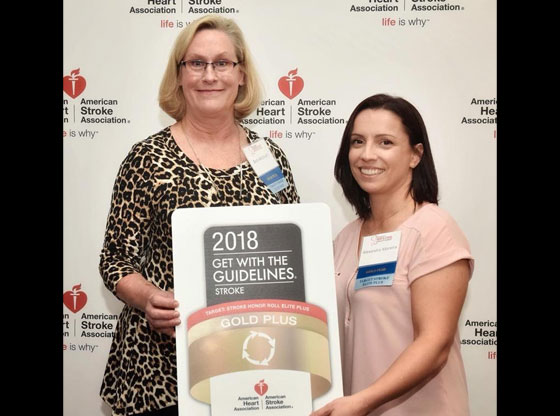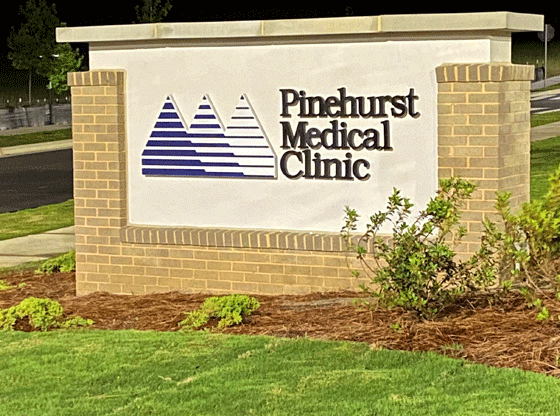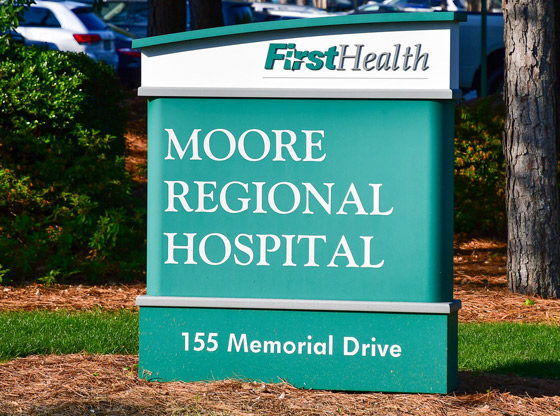FirstHealth Moore Regional Hospital has received the American Heart Association/American Stroke Association’s Get With The Guidelines®-Stroke Gold Plus Quality Achievement Award.
The award recognizes the hospital’s commitment to ensuring stroke patients receive the most appropriate treatment according to nationally recognized, research-based guidelines based on the latest scientific evidence.
Moore Regional Hospital earned the award by meeting specific quality achievement measures for the diagnosis and treatment of stroke patients at a set level for a designated period.
These measures include evaluation of the proper use of medications and other stroke treatments aligned with the most up-to-date, evidence-based guidelines with the goal of speeding recovery and reducing death and disability for stroke patients. Before discharge, patients should also receive education on managing their health, get a follow-up visit scheduled, as well as other care transition interventions.
“FirstHealth is dedicated to improving the quality of care for our stroke patients by implementing the American Heart Association’s Get With The Guidelines-Stroke initiative,” says Cindy McNeill-McDonald, R.N., vice president of quality for FirstHealth of the Carolinas. “The tools and resources provided help us track and measure our success in meeting evidence-based clinical guidelines developed to improve patient outcomes.”
Moore Regional additionally received the association’s Target: StrokeSM Elite Plus award. To qualify for this recognition, hospitals must meet quality measures developed to reduce the time between the patient’s arrival at the hospital and treatment with the clot-buster tissue plasminogen activator, or tPA, the only drug approved by the U.S. Food and Drug Administration to treat ischemic stroke.
“Achieving this award is a testament to the hard work of our incredible multidisciplinary team,” says Lori Lefler, director of quality for FirstHealth Moore Regional Hospital. “Our physicians, nurses, imaging technicians, quality coordinators and tele-communicators work tirelessly day in and day out to make sure our patients with stroke and TIA are provided the very best care possible. This award validates a culmination of those efforts. Each and every person who cares for our stroke patients should be proud of this achievement.”
According to Lefler, FirstHealth’s stroke services team works in coordination with the entire FirstHealth system to educate staff and physicians on new standards of care and processes.
“It takes a team approach to make certain everyone from the EMS agency picking the patient up at home, to the CT tech completing the fast diagnostic imaging, to the nurse discharging the patient from the hospital, to make sure we are meeting the nationally benchmarked standards of care for every patient,” she says.
“We are pleased to recognize FirstHealth Moore Regional Hospital for their commitment to stroke care,” says Eric E. Smith, M.D., national chairman of the Get With The Guidelines Steering Committee and an associate professor of neurology at the University of Calgary in Alberta, Canada. “Research has shown that hospitals adhering to clinical measures through the Get With The Guidelines quality improvement initiative can often see fewer readmissions and lower mortality rates.”
According to the American Heart Association/American Stroke Association, stroke is the number 5 cause of death and a leading cause of adult disability in the United States. On average, someone in the U.S. suffers a stroke every 40 seconds and nearly 795,000 people suffer a new or recurrent stroke each year.
Feature photo: Barbara McGrath (left) and Alexandra Moreira (right), both of FirstHealth Moore Regional Hospital, accept the “Get With The Guidelines-Stroke Gold Plus Quality Achievement Award” on behalf of FirstHealth at an awards ceremony held by the American Heart Association/American Stroke Association. The award recognizes the hospital’s commitment to ensuring stroke patients receive the most appropriate treatment according to nationally recognized, research-based guidelines based on the latest scientific evidence.

















